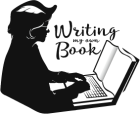LinkedIn profiles are a powerful social media tool for writers. For this reason, when you write your LinkedIn summary, it’s vital that you remember you are writing in a social environment. The whole purpose of your summary is to provide an overview of who you are, not just your skills. You want to give potential employers a sense of what it would be like to have you on board. This means that you must avoid the “bio” approach to your LinkedIn Profile, especially the summary.
“What is the bio approach?” you may ask.
Let me describe it.
Bios are typically written in the third person. “Jane Doe is an X with X experience… ” This is a formal approach, which gives the impression that someone else wrote your summary. The last thing you need on LinkedIn is to look like you are so impressed with yourself that you hired someone to write your bio. You also don’t want to announce to the world that you are so unskilled as a writer that you can’t write your own summary.
I can’t say it any more effectively than that!
As a writer, you should have a resume because it will often close the deal after your LinkedIn profile elicits interest. However, recognizing the difference in purpose between a formal resume and a LinkedIn profile may help you close more writing contracts.


